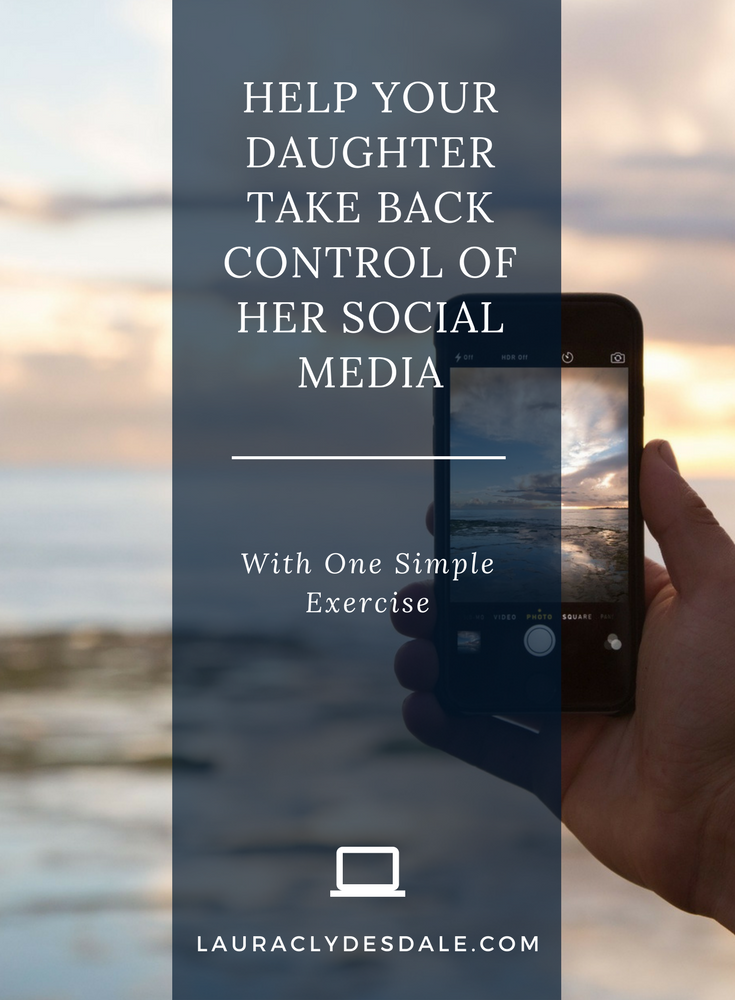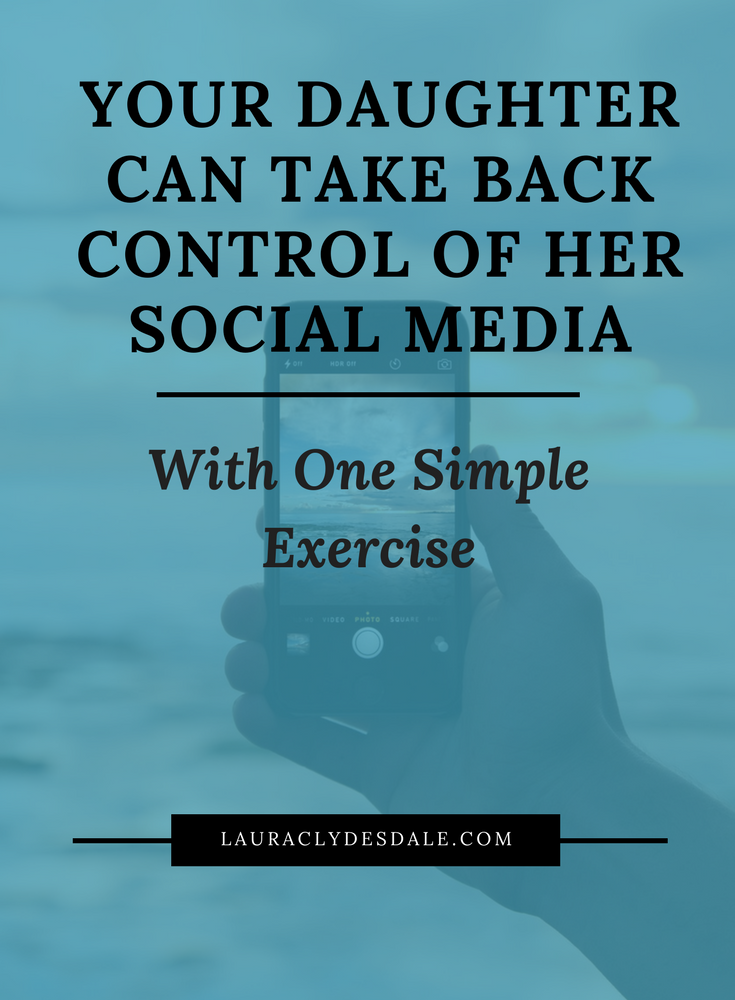The headlines on the dangers of social media over the last few months are enough to cause us parents to lose our minds:
A study of girls' experiences with sexting found that over two-thirds had been asked to send explicit images. Other research compelled Facebook to issue a warning that ’passively consuming’ the News Feed will make you feel worse about yourself. Further academic research on the dangers of social media tell us that our girls are more depressed, have less supportive friends and relatives, want to go to school less, and feel bad about their bodies the more frequently they use social media.
Before I build a moat around my daughter, I have one big question: Why isn’t anyone teaching me (and her) how to use social media as a tool for her power?
There are a lot of dangers to driving a car, but my parents taught me to drive a car rather than just lecture me about the risks. Of course they gave me lots of warnings. But I also received training before they handed over the keys with a smile and said “have fun and be safe!”
Why should social media be any different?
To make matters worse, no one is talking us off the ledge. Instead, they are piling on. At after-school events to train parents on social media, police officers counsel parents and kids that if they post certain things they can go to jail or be registered as a sex offender. Lawyers explain that if you make one wrong move on social media, that post or picture can follow you for the rest of your life, hurting your chances of getting into a college or getting hired by your dream company. This doesn’t even cover the warnings we get about cyberbullying, relationship aggression, and sexting your child could experience (or wield) if not careful.
Simply put, the advice to parents is control, limit, and stalk.
None of this advice is terrible, however, it’s all defensive. I have nothing against a good defense; however, if we only view social media as a dangerous community to protect against, our kids will disengage from discussing it with us. This attitude toward social media makes us look like dinosaurs who ‘just don’t get it.’
Dr. Lisa Hinkelman, founder and executive director of ROX (Ruling Our Experiences - a non-profit girls’ leadership organization), says the “control, limit and stalk” message is unfortunate because a prerequisite to successfully helping your daughter navigate social media is an open line of communication.
She says, “Girls are much less likely to be open and communicative with people they feel may be judging their responses or decisions. If girls feel like there is a "right" answer or response, they are much less likely to share their true opinions and much less likely to engage in an authentic conversation.”
The other downside of being purely defensive is that it implies our girls are powerless.
Hinkelman, says “social media is not going anywhere and it is likely to continue to impact and influence our society in profound ways that we cannot even anticipate. With the generational and technological divide impacting the way that parents and teens communicate with their peer group and with one another, we must actively work to create positive and prosocial ways to discuss, use and manage social media.”
Hinkelman’s ROX is a co-curricular program that runs during the school day and is delivered by trained and licensed counselors and social workers. They offer programming that doesn’t just help girls take back control of their social media; but teaches girls skills to effectively navigate their world.
ROX believes social media is just one of many communities that require relationship building. Skills girls need to successfully navigate complex life situations are the same skills girls need to navigate social media. If a girl can’t trust their intuition, avoid coercion, and stand up for herself at school or in person, how is she going to have the strength to say, “I’m not sending you a naked picture!”?
ROX sees an opportunity to leverage the social media conversation and impact other areas of a girl’s life. “How can we shift the conversation from seeing social media as a negative that must constantly be managed to something that has the potential to be a positive support in a girl’s life? We should use the opportunity to help foster the social connections that are so important to girls by encouraging support and collaboration over pressure and competitiveness,” says Hinkelman.
For instance, since girls often don’t speak their mind for wanting people to like them, could we teach girls to harness social media as an opportunity to practice this critical skill? It might be easier for them to stand for something on social media rather than doing it in person.
There are some simple things we can do as parents to start flipping the social media conversation on its head.
Hinkelman shares an activity that can easily be done at home.
First, ask your daughter to consider how she would describe herself in three words. Next, have her brainstorm three words her closest friends would use to describe her. Are there similarities or differences? Finally, take a look at her social profiles. When friends (or strangers!) view her profile, social media feed, and online activity — what conclusions might they make?
When ROX asked 10,000 girls across the country to do the above exercise, many girls had similarities between these lists, however, more often than not, there were marked differences.
Hinkelman says, “The girls wanted to paint an image of being ‘pretty, fun and funny’ on social. Helping girls examine the way they personally view themselves and how, what and why they want others to develop specific opinions about them can create an interesting and illuminating conversation. For example, if a girl describes herself as happy, positive and hard-working, but her profile demonstrates criticism of herself or of other girls and is fraught with negative posts, a learning opportunity exists in this space.”
If a girl never has an opinion for fear of not being liked as a teenager, how will she have an opinion in the boardroom 20 years later? If we are not teaching girls how to do this in real life, how do we expect them to do it on social media?
We cannot discuss social media in a bubble, and we can’t only view it as a negative community to protect against. It is too intertwined with all of our other relationships and communities.
Now is the time for offense. Open a dialog with your daughter and start shifting the power back into her hands.
-Laura






